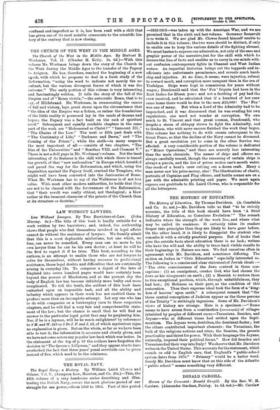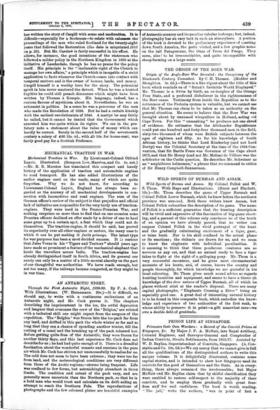DONALD CARGILL.
has written the story of Cargill with sense and moderation. It ia difficult—especially for a Scotsman—to relate with calmness the proceedings of the men who ruled Scotland for the twenty-eight years that followed the Restoration (the date is misprinted 1652 on p. 25). But Mr. Carslaw is fairly successful in his effort. He allows, for instance, the good intentions of the statesmen who followed a milder policy in the Northern Kingdom in 1669 at the initiative of Lauderdale, though he has no praise for the policy itself. His principle is the "inalienable right of the Church to manage her own affairs," a principle which is incapable of a strict application to facts whenever the Church comes into contact with temporal matters and is the owner of houses, lands, and money. Cargill himself is a worthy hero for the story. The polemical spirit in him never mastered the devout. When he was a hunted fugitive he could still preach discourses which might have been written by Thomas a Kempis. His language, indeed, has a curious flavour of mysticism about it. Nevertheless, he was an extremist in politics. In a sense he was a precursor of the men who made the Revolution of 1688. But he had a certain kinship with the earliest revolutionists of 1648. A martyr he may fairly be called, but it cannot be denied that the Government which executed him was quite within its rights. We see in the pre- fatory note a statement about the value of money which can hardly be correct. Surely in the second half of the seventeenth century a salary of £66 13s. 4s1., with ..£5 10s. for house-rent, was fairly good pay for a Scottish Professor.



















































 Previous page
Previous page